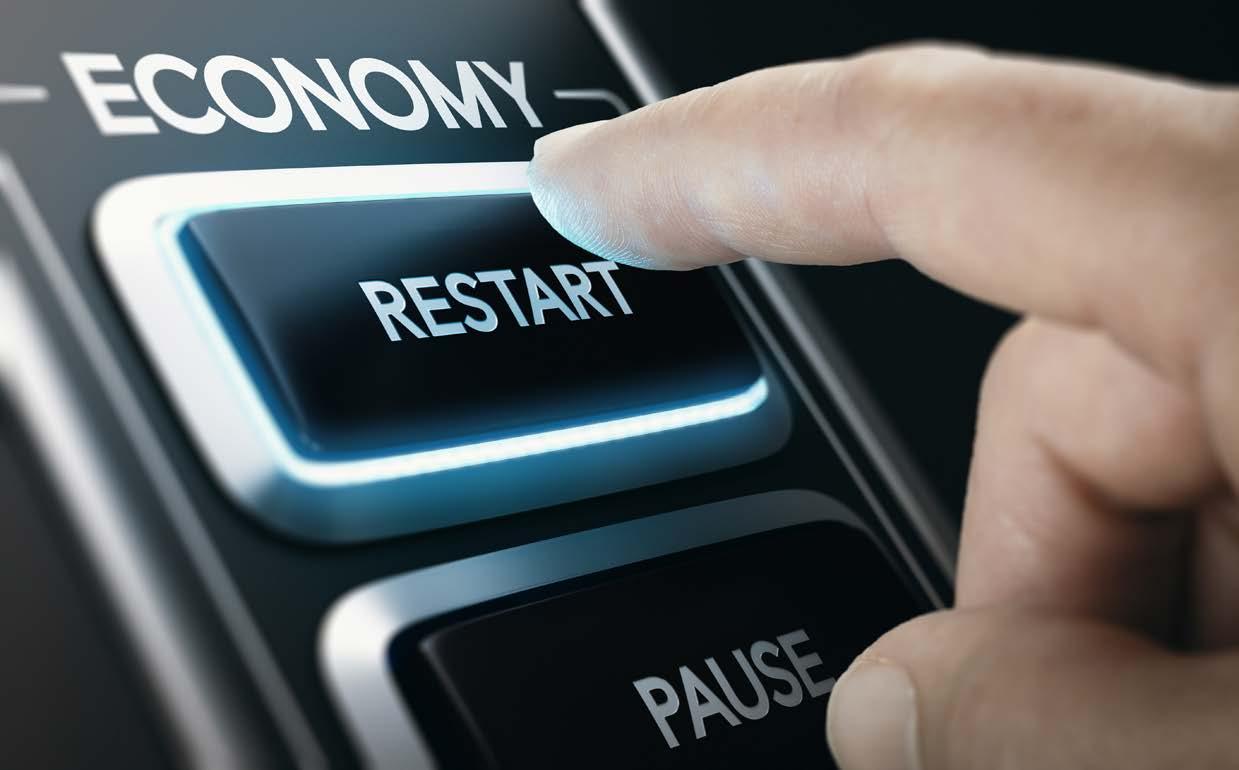
3 minute read
More on voting in 2020
Summary of the New Hampshire emergency election committee’s report
BY BRAD COOK
Several states held primary elections the first and second weeks of June as presidential primary season slowly approached its end. The elections, in places like Pennsylvania, Ohio and Georgia, experienced the problems many observers feared amid Covid-19: long lines, fewer polling places open because of increased use of absentee ballots and delays due to the need to count so many mailed-in ballots. Far fewer voters turn out to vote in primaries than in November, especially in presidential election years.
In New Hampshire, the Select Committee on 2020 Emergency Election Support completed its work and submitted its report to Secretary of State William M. Gardner on June 8. That committee, which I chaired, was appointed by Gardner to advise him on election procedures and on the spending of federal money appropriated by Congress as part of the CARES Act, to help states deal with the special problems of election in a pandemic year.
The committee held public meetings in April, May and June, with input from staff of the Secretary of State and Attorney General, local election officials, interest groups, political parties, educational institutions, labor organizations and the public. Our aim was to study how the current public health issues affect the conduct of elections and other election-related matters, as well as how to spend the federal funds New Hampshire has received related to elections.
A press release from the committee summarized the 31-page report:
• “The safest way to keep voters and election workers safe during the fall primary and general election is for as many voters as possible to vote by absentee ballot.”
• “A vast increase in the number of absentee ballots will require new processes and create new expenses for the conduct of elections.”
• “In-person elections will continue to be held, and measures must be designed to keep voters and election workers safe during such elections.”
• “Other election-related matters, like changing party registration, registering to vote, filing for office and changing back to undeclared status during primaries, need to be available in a way to be done remotely and/or safely, in order to keep municipal offices and polling places uncrowded and safe.”
• “Opportunities for voters to obtain ballots and vote absentee in person should be provided for a reasonable time prior to election day, especially in larger communities.”
The report also recommends the priorities for spending the federal funds received by the state:
• Payment of the costs of accounting for the funds and following the federal guidelines.
• Providing personal protective equipment for poll workers and voters.
• Publicizing the availability of absentee voting and registration — including a mailing to all New Hampshire households providing information on how to do so easily.
• Paying for prepaid postage for return of absentee ballots and increased cost of sending them.
• Funding additional polling place costs, including safety, relocation and expansion
• Paying for lease of additional ballotcounting machines.
Adds the press release: “Summing up its work, the members said, ‘ … we have come to realize the importance of the work we have been assigned, and the critical significance of making safe selection procedures to all who want to vote, and those who help
make it happen. It is not overly dramatic to say that unless New Hampshire and all other states get this right this year, the future of our nation and world could be affected, forever.’”
As chair of the committee, I took no comfort in comparing our summary statement with the problems encountered in other, larger states, at the same time we were completing the report.
As the committee completed its work, Secretary of State Bill Gardner and Attorney General Gordon MacDonald issued joint guidance explaining how voters concerned about the effects of registering to vote in person during the pandemic could request registration-by-mail forms and file them from home, and they could arrange a oneon-one meeting with voting officials to fill out such forms.
Some of the recommendations of the committee may require additional guidance, an executive order or legislation. Whether that will be forthcoming or not remains to be seen. Those interested in knowing more can view the report and other guidance at NH.SOS.gov.
It is now incumbent on all of us to make the options for voting safely known to all New Hampshire citizens. The future of the world may depend on it.
Brad Cook is a Manchester attorney. The views expressed in this column are his own. He can be reached at bradfordcook01@gmail.com.





